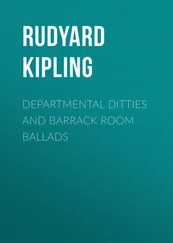Rudyard Kipling - Kipling Stories and Poems Every Child Should Know, Book II
Здесь есть возможность читать онлайн «Rudyard Kipling - Kipling Stories and Poems Every Child Should Know, Book II» — ознакомительный отрывок электронной книги совершенно бесплатно, а после прочтения отрывка купить полную версию. В некоторых случаях можно слушать аудио, скачать через торрент в формате fb2 и присутствует краткое содержание. Жанр: foreign_language, foreign_prose, на английском языке. Описание произведения, (предисловие) а так же отзывы посетителей доступны на портале библиотеки ЛибКат.
- Название:Kipling Stories and Poems Every Child Should Know, Book II
- Автор:
- Жанр:
- Год:неизвестен
- ISBN:нет данных
- Рейтинг книги:3 / 5. Голосов: 1
-
Избранное:Добавить в избранное
- Отзывы:
-
Ваша оценка:
- 60
- 1
- 2
- 3
- 4
- 5
Kipling Stories and Poems Every Child Should Know, Book II: краткое содержание, описание и аннотация
Предлагаем к чтению аннотацию, описание, краткое содержание или предисловие (зависит от того, что написал сам автор книги «Kipling Stories and Poems Every Child Should Know, Book II»). Если вы не нашли необходимую информацию о книге — напишите в комментариях, мы постараемся отыскать её.
Kipling Stories and Poems Every Child Should Know, Book II — читать онлайн ознакомительный отрывок
Ниже представлен текст книги, разбитый по страницам. Система сохранения места последней прочитанной страницы, позволяет с удобством читать онлайн бесплатно книгу «Kipling Stories and Poems Every Child Should Know, Book II», без необходимости каждый раз заново искать на чём Вы остановились. Поставьте закладку, и сможете в любой момент перейти на страницу, на которой закончили чтение.
Интервал:
Закладка:
"You shall all come," said Punch, from the height of Meeta's strong arms. "Meeta and the ayah and the hamal and Bhini-in-the-Garden, and the salaam-Captain-Sahib-snake-man."
There was no mockery in Meeta's voice when he replied – "Great is the Sahib's favour," and laid the little man down in the bed, while the ayah, sitting in the moonlight at the doorway, lulled him to sleep with an interminable canticle such as they sing in the Roman Catholic Church at Parel. Punch curled himself into a ball and slept.
Next morning Judy shouted that there was a rat in the nursery, and thus he forgot to tell her the wonderful news. It did not much matter, for Judy was only three and she would not have understood. But Punch was five; and he knew that going to England would be much nicer than a trip to Nassick.
And Papa and Mamma sold the brougham and the piano, and stripped the house, and curtailed the allowance of crockery for the daily meals, and took long council together over a bundle of letters bearing the Rocklington postmark.
"The worst of it is that one can't be certain of anything," said Papa, pulling his moustache. "The letters in themselves are excellent, and the terms are moderate enough."
"The worst of it is that the children will grow up away from me," thought Mamma; but she did not say it aloud.
"We are only one case among hundreds," said Papa bitterly. "You shall go Home again in five years, dear."
"Punch will be ten then – and Judy eight. Oh, how long and long and long the time will be! And we have to leave them among strangers."
"Punch is a cheery little chap. He's sure to make friends wherever he goes."
"And who could help loving my Ju?"
They were standing over the cots in the nursery late at night, and I think that Mamma was crying softly. After Papa had gone away, she knelt down by the side of Judy's cot. The ayah saw her and put up a prayer that the memsahib might never find the love of her children taken away from her and given to a stranger.
Mamma's own prayer was a slightly illogical one. Summarized it ran: "Let strangers love my children and be as good to them as I should be, but let me preserve their love and their confidence for ever and ever. Amen." Punch scratched himself in his sleep, and Judy moaned a little. That seems to be the only answer to the prayer: and, next day, they all went down to the sea, and there was a scene at the Apollo Bunder when Punch discovered that Meeta could not come too, and Judy learned that the ayah must be left behind. But Punch found a thousand fascinating things in the rope, block, and steam-pipe line on the big P. and O. Steamer, long before Meeta and the ayah had dried their tears.
"Come back, Punch-baba," said the ayah.
"Come back," said Meeta, "and be a Burra Sahib."
"Yes," said Punch, lifted up in his father's arms to wave good-bye. "Yes, I will come back, and I will be a Burra Sahib Bahadur!"
At the end of the first day Punch demanded to be set down in England, which he was certain must be close at hand. Next day there was a merry breeze, and Punch was very sick. "When I come back to Bombay," said Punch on his recovery, "I will come by the road – in a broom-gharri. This is a very naughty ship."
The Swedish boatswain consoled him, and he modified his opinions as the voyage went on. There was so much to see and to handle and ask questions about that Punch nearly forgot the ayah and Meeta and the hamal, and with difficulty remembered a few words of the Hindustani once his second-speech.
But Judy was much worse. The day before the steamer reached Southampton, Mamma asked her if she would not like to see the ayah again. Judy's blue eyes turned to the stretch of sea that had swallowed all her tiny past, and she said: "Ayah! What ayah?"
Mamma cried over her, and Punch marveled. It was then that he heard for the first time Mamma's passionate appeal to him never to let Judy forget Mamma. Seeing that Judy was young, ridiculously young, and that Mamma, every evening for four weeks past, had come into the cabin to sing her and Punch to sleep with a mysterious tune that he called "Sonny, my soul," Punch could not understand what Mamma meant. But he strove to do his duty, for the moment Mamma left the cabin, he said to Judy: "Ju, you bemember Mamma?"
"'Torse I do," said Judy.
"Then always bemember Mamma, 'r else I won't give you the paper ducks that the red-haired Captain Sahib cut out for me."
So Judy promised always to "bemember Mamma."
Many and many a time was Mamma's command laid upon Punch, and Papa would say the same thing with an insistence that awed the child.
"You must make haste and learn to write, Punch," said Papa, "and then you'll be able to write letters to us in Bombay."
"I'll come into your room," said Punch, and Papa choked.
Papa and Mamma were always choking in those days. If Punch took Judy to task for not "bemembering," they choked. If Punch sprawled on the sofa in the Southampton lodging-house and sketched his future in purple and gold, they choked; and so they did if Judy put up her mouth for a kiss.
Through many days all four were vagabonds on the face of the earth: Punch with no one to give orders to, Judy too young for anything, and Papa and Mamma grave, distracted, and choking.
"Where," demanded Punch, wearied of a loathsome contrivance on four wheels with a mound of luggage atop – "where is our broom-gharri? This thing talks so much that I can't talk. Where is our own broom-gharri? When I was at Bandstand before we comed away, I asked Inverarity Sahib why he was sitting in it, and he said it was his own. And I said, 'I will give it you' – I like Inverarity Sahib – and I said, 'Can you put your legs through the pully-wag loops by the windows? And Inverarity Sahib said No, and laughed. I can put my legs through the pully-wag loops. I can put my legs through these pully-wag loops. Look! Oh, Mamma's crying again! I did n't know. I was n't not to do so."
Punch drew his legs out of the loops of the four-wheeler: the door opened and he slid to the earth, in a cascade of parcels, at the door of an austere little villa whose gates bore the legend "Downe Lodge." Punch gathered himself together and eyed the house with disfavour. It stood on a sandy road, and a cold wind tickled his knickerbockered legs.
"Let us go away," said Punch. "This is not a pretty place."
But Mamma and Papa and Judy had quitted the cab, and all the luggage was being taken into the house. At the door-step stood a woman in black, and she smiled largely, with dry chapped lips. Behind her was a man, big, bony, gray, and lame as to one leg – behind him a boy of twelve, black-haired and oily in appearance. Punch surveyed the trio, and advanced without fear, as he had been accustomed to do in Bombay when callers came and he happened to be playing in the veranda.
"How do you do?" said he. "I am Punch." But they were all looking at the luggage – all except the gray man, who shook hands with Punch and said he was a "smart little fellow." There was much running about and banging of boxes, and Punch curled himself up on the sofa in the dining-room and considered things.
"I don't like these people," said Punch. "But never mind. We'll go away soon. We have always went away soon from everywhere. I wish we was gone back to Bombay soon."
The wish bore no fruit. For six days Mamma wept at intervals, and showed the woman in black all Punch's clothes – a liberty which Punch resented. "But p'raps she's a new white ayah," he thought. "I'm to call her Antirosa, but she does n't call me Sahib. She says just Punch," he confided to Judy. "What is Antirosa?"
Judy did n't know. Neither she nor Punch had heard anything of an animal called an aunt. Their world had been Papa and Mamma, who knew everything, permitted everything, and loved everybody – even Punch when he used to go into the garden at Bombay and fill his nails with mold after the weekly nail-cutting, because, as he explained between two strokes of the slipper to his sorely tried Father, his fingers "felt so new at the ends."
Читать дальшеИнтервал:
Закладка:
Похожие книги на «Kipling Stories and Poems Every Child Should Know, Book II»
Представляем Вашему вниманию похожие книги на «Kipling Stories and Poems Every Child Should Know, Book II» списком для выбора. Мы отобрали схожую по названию и смыслу литературу в надежде предоставить читателям больше вариантов отыскать новые, интересные, ещё непрочитанные произведения.
Обсуждение, отзывы о книге «Kipling Stories and Poems Every Child Should Know, Book II» и просто собственные мнения читателей. Оставьте ваши комментарии, напишите, что Вы думаете о произведении, его смысле или главных героях. Укажите что конкретно понравилось, а что нет, и почему Вы так считаете.












